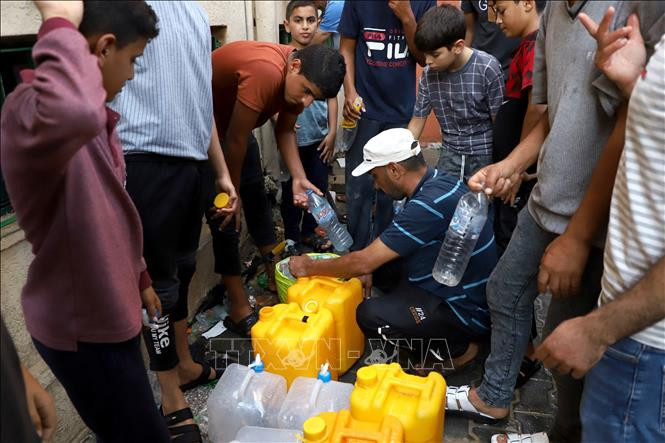According to AFP news agency, on October 29, the Israeli Army (IDF) advised civilians in the Gaza Strip to move south of the besieged territory, where the IDF said humanitarian efforts "will be expanded".

In a statement, IDF spokesman Daniel Hagari stressed that civilians in northern Gaza and Gaza City should temporarily move south of Wadi Gaza to safer areas where they can receive water, food and medicine. Humanitarian efforts to Gaza - led by Egypt and the US - will be expanded there.
In a video posted on social media X earlier in the day, another spokesperson said the footage was filmed on October 28 and confirmed that humanitarian efforts were expanded on October 29.
In a related development, on the same day, American billionaire Elon Musk pledged to ensure the provision of Starlink satellite Internet service in the Gaza Strip for humanitarian purposes.
Palestinian media reported that telephone and Internet connections are gradually being restored in the Gaza Strip. News agencies that are regularly based in the Gaza Strip, such as Reuters and AFP, also confirmed that since 4:00 a.m. on October 29, Internet and telephone connections have been restored. Global network monitoring agency Netblocks also confirmed this information.
Regarding Israel's military campaign, on October 29, Israeli Prime Minister Benjamin Netanyahu said that the night before, infantry units had been reinforced into the Gaza Strip, launching the second phase of the war with the goal of eliminating Hamas' political and military capabilities as well as rescuing hostages.
Meanwhile, on social network X, Iranian President Ebrahim Raisi criticized Israel for crossing the "red line". Foreign Minister Hossein Amir-Abdollahian also assessed the current situation in the Middle East as similar to a "powder keg". According to him, developments in the region are at risk of getting out of control.
According to Tin Tuc newspaper